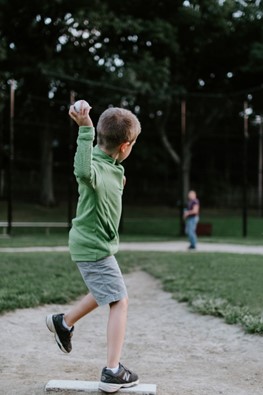 HHP - Update me in site_config > General Configuration
HHP - Update me in site_config > General Configuration
Sport participation offers many potential benefits. People are more active and enjoy improvements in their physical and mental health.

Photo by Kelly Sikkema
November 15, 2022
by Collin Ulmer
Sport participation offers many potential benefits. People are more active and enjoy improvements in their physical and mental health.
Sport also has the potential to yield other positive outcomes, especially among youth. These include life lessons, non-sport skills, and character development.
These potential opportunities reflect what is referred to as “sport-based youth development (SBYD),” which is measured in general life skills and maturity of the youth athletes.
Recently, Dr. Christine Wegner, Instructional Assistant Professor in the Department of Sport Management, and colleagues examined how SBYD could be measured. They also investigated the best way to implement SBYD principles in youth sports.
Dr. Wegner and colleagues found differing factors that weigh into the effectiveness of youth development within sports, but two techniques were most salient.
First, researchers claim that a “bottom up” implementation of SBYD is necessary yet remains tied to the geographical area in which the athletes live and are active. In this strategy, youth development originates in the community surrounding the athletes, via the school, coaches, and community members supporting the team. Individuals from these groups ideally model proper behavior and contributions to society for the youth athletes.
Second, a familial environment is a necessity, as it creates an emotional bond between players and instructors. These strong relationships can then lead to stronger results within sport and inspire moral integrity in non-sport situations.
Based on these findings, Dr. Wegner and the team noted that teams “can facilitate the optimal level of trust and buy-in for coaches and mentors to be most effective, not only in teaching sport progression, but positive character development as well.”
***
Read the full article here:
Wegner, C., Bopp, T., & Jones, G. J. (2020). Programmatic strategies for optimal interactions in a youth sport for development context. Managing Sport and Leisure. DOI: 10.1080/23750472.2020.1776146
***
Connect with UF SPM: Facebook | Instagram | LinkedIn | Twitter
***